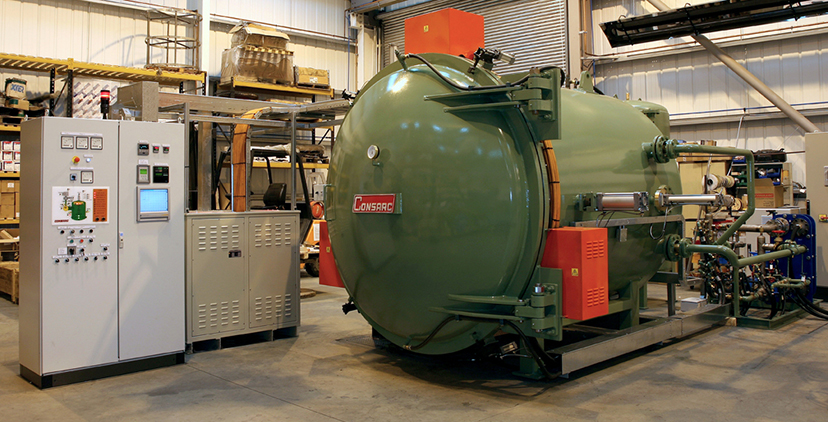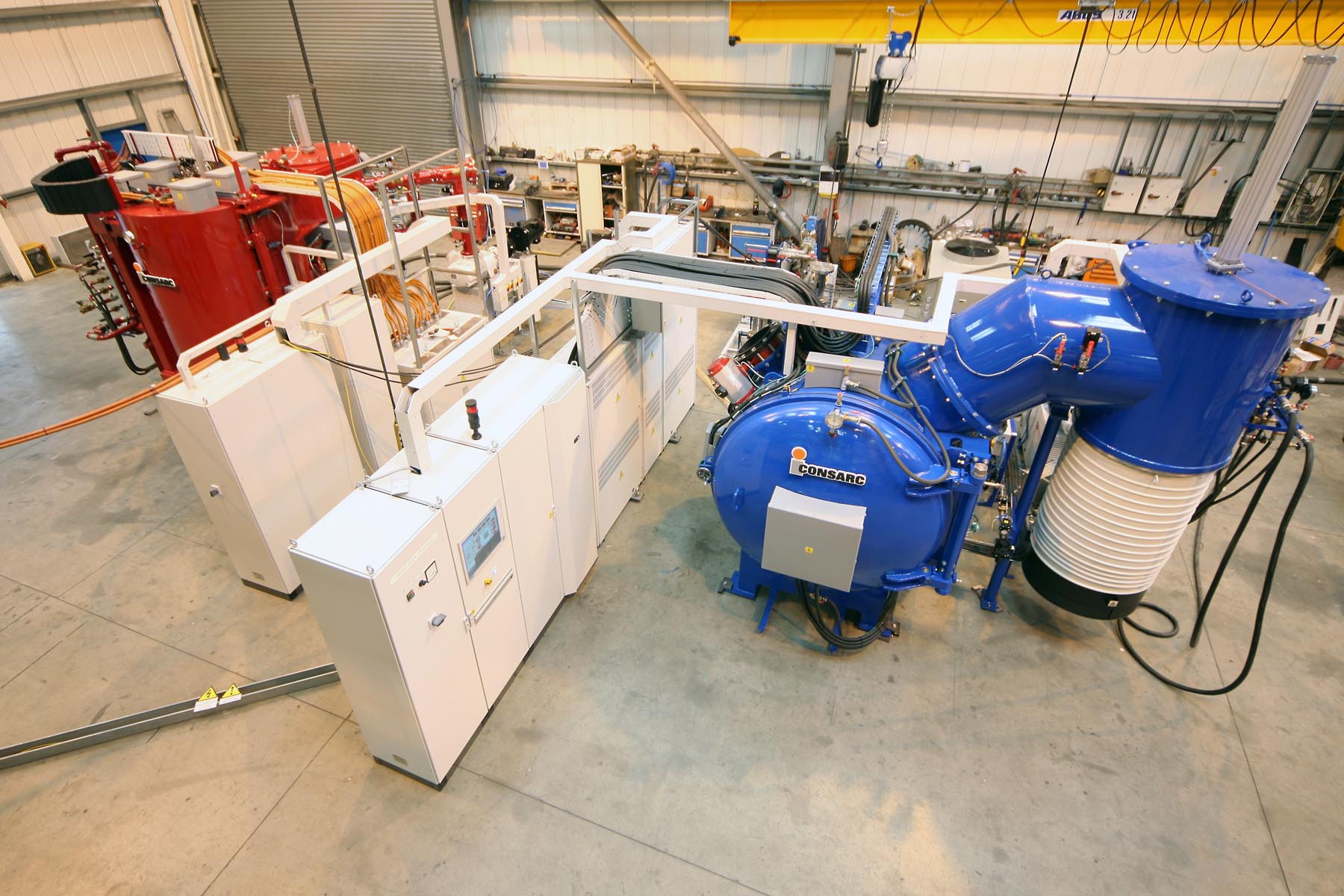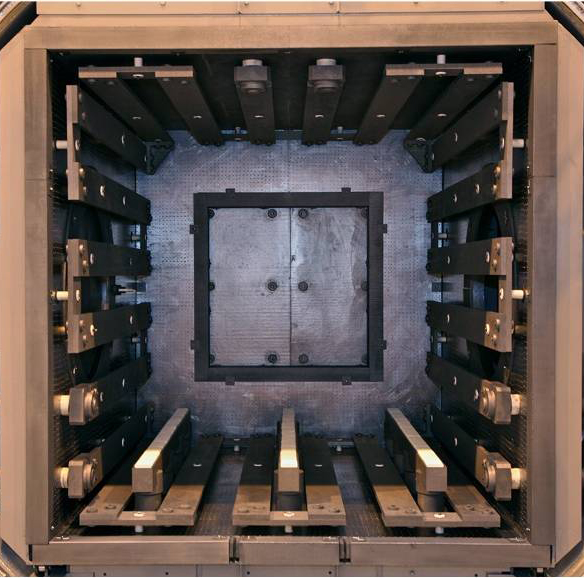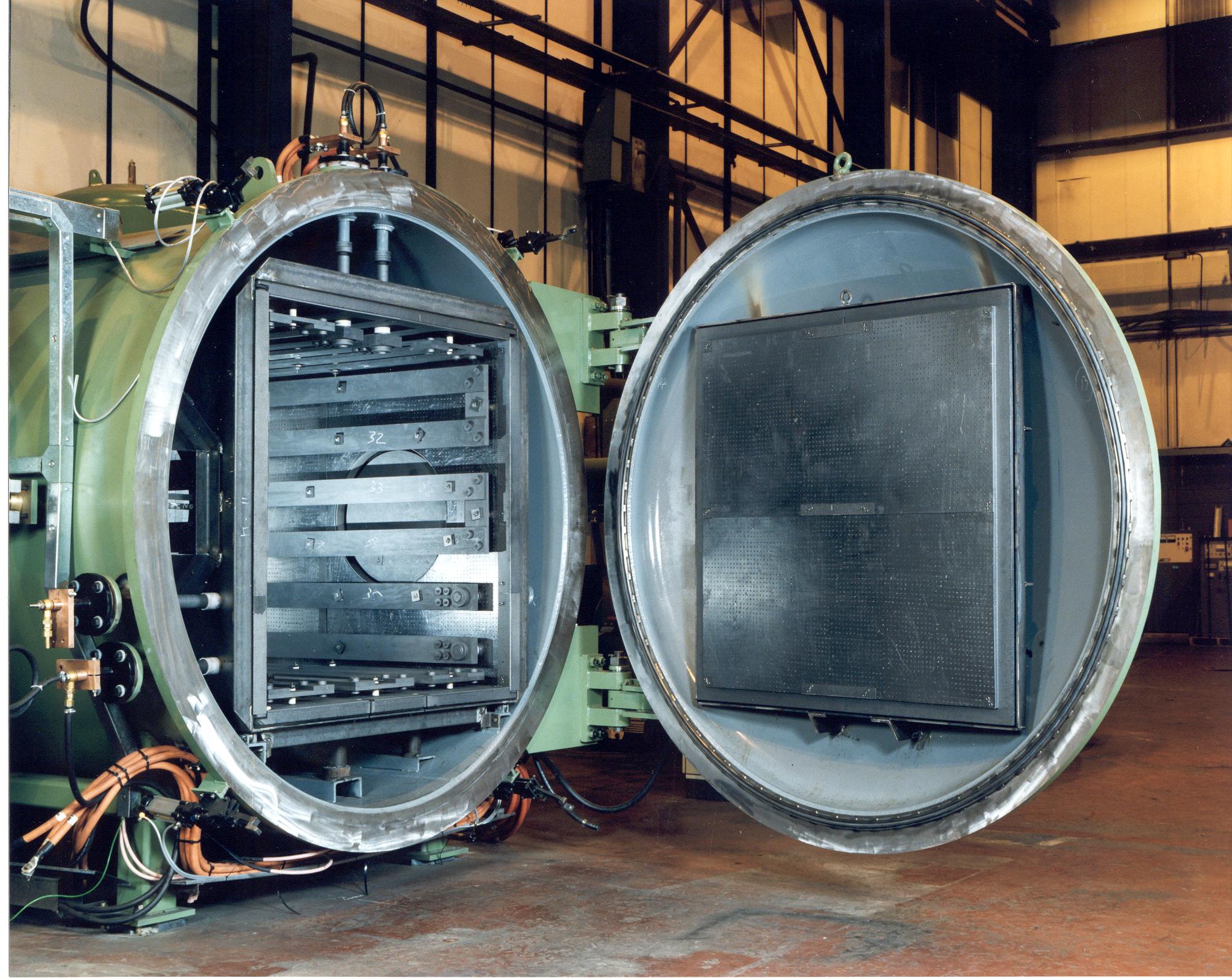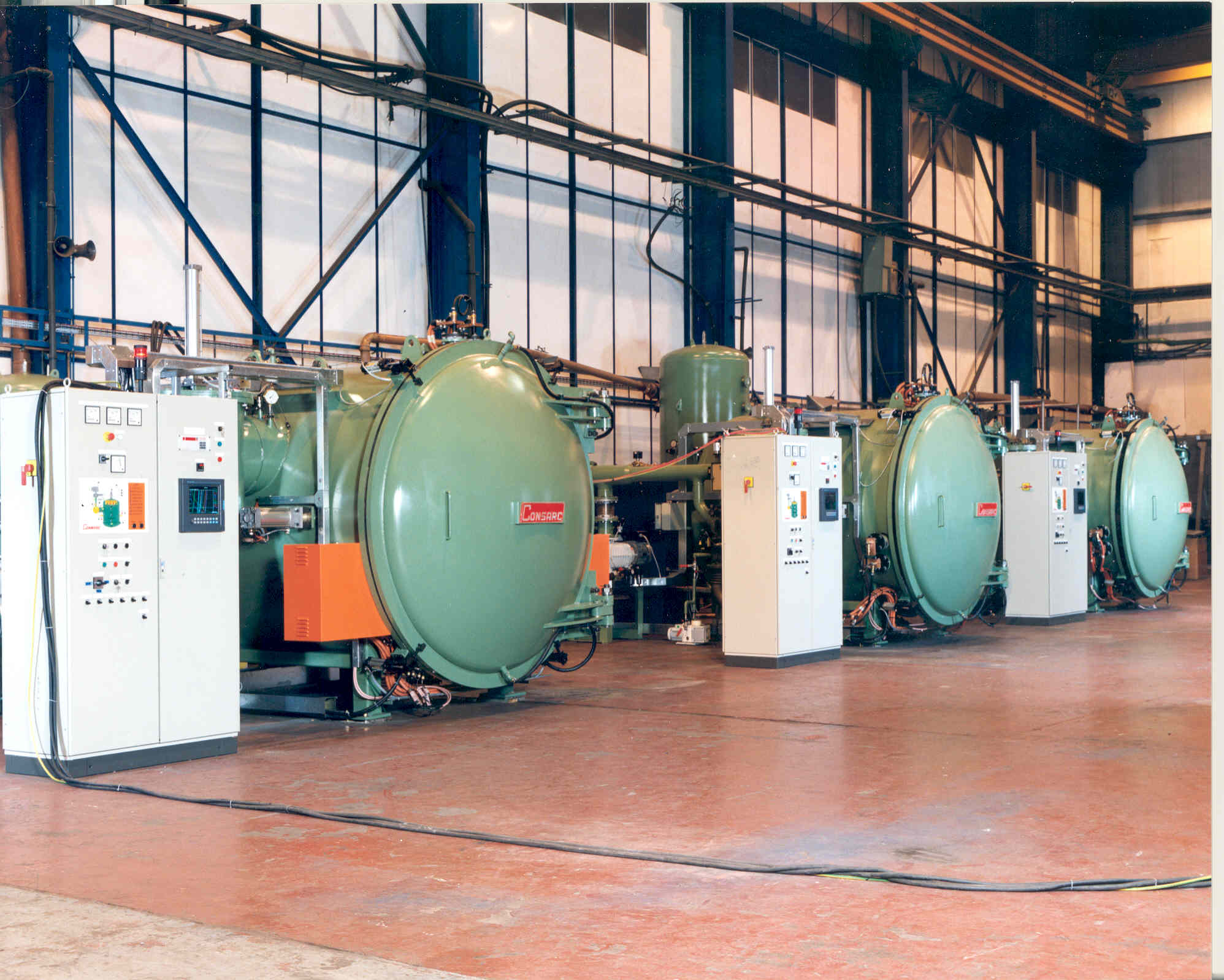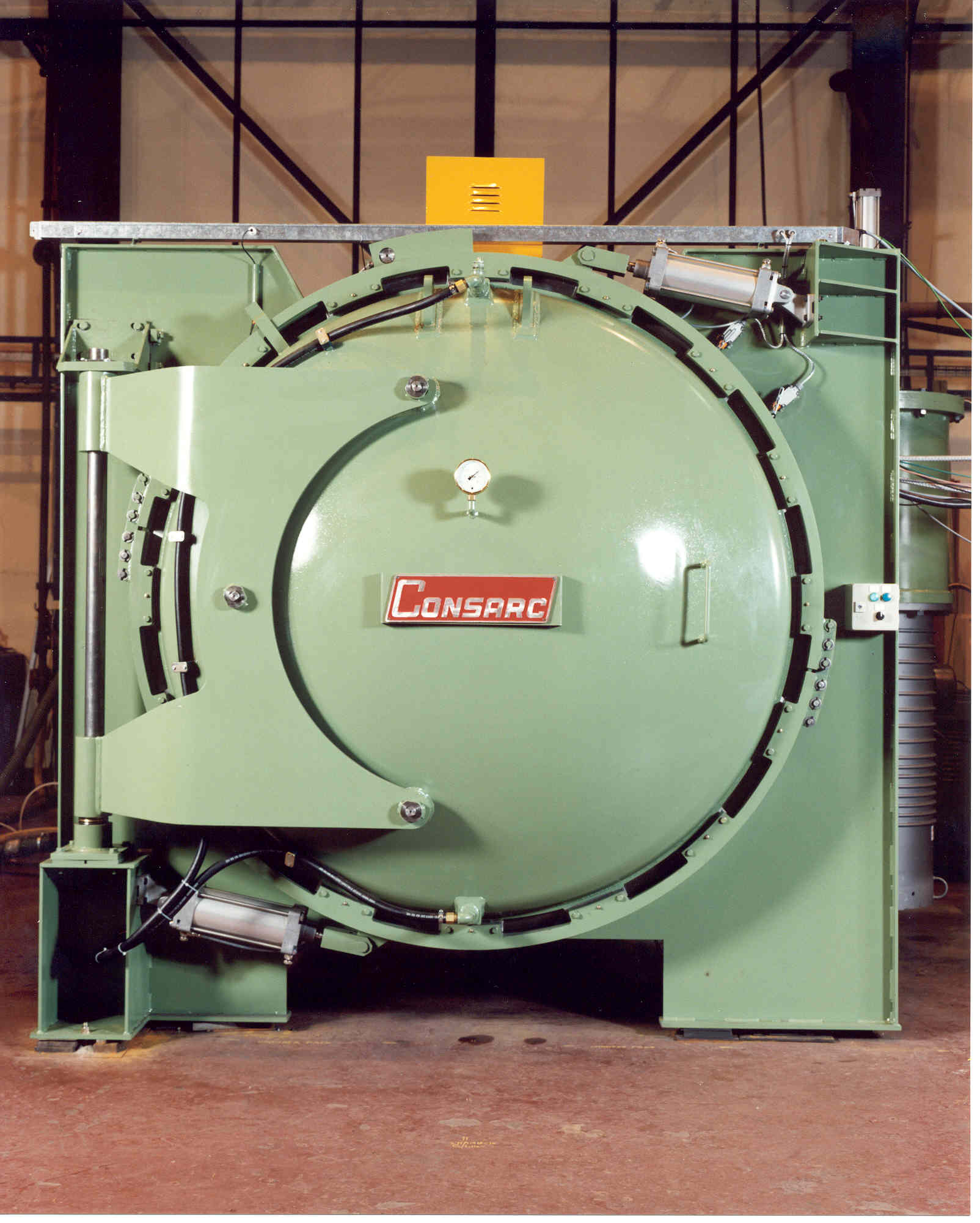
Horizontal Vacuum Heat Treatment Furnaces

Vacuum heat treatment is a well established practice in the aerospace (OEM and repair), land based turbines, automotive and tool industries. Controlled thermal processing of components is carried out in a vacuum environment to eliminate the deleterious effects of the charge reacting with the gases present in air. The main advantages of this process are bright oxide-free finishes with no carburisation or decarburisation, controlled heating and repeatability without hazardous fumes or toxic waste.
Features
-
-
- Graphite or metallic hot zones, with graphite being the heat treaters’ preferred option for most processes due to its longer life, lower replacement cost and reduced power consumption. Composite hot zone constructions utilizing metallic, graphite and/or ceramic fiber materials are also available to meet specific customer requirements.
- Carbon bonded Carbon fiber insulation packs can be provided with additional sacrificial hot face protection to extend lining life
- Single or multi zone heater configurations depending on size and/or application
- Hot zones are assembled into a removable steel casing to permit easy removal and maintenance
- Water cooled copper feedthroughs with robust heater connections
- Heater control typically by thermocouple up to 1599oC and optical pyrometer to over 2199oC
- Compliant with NADCAP and AMS2750 requirements if required
- Medium or high vacuum pumping systems to suit the process and application
- Gas quench systems are available to meet process requirements ranging from fan assisted cooling to rapid, uniformly controlled Multiflow and high pressure quenching operations up to 10 bar.
- Manual or automated gas flow control systems can be provided to suit the process and application.
- Optional Fan assisted convection heating systems are offered for operation in the temperature range up to 750oC where heat transfer by radiation is not at its most effective, particularly with densely packed loads. These systems allow faster heating rates and improved temperature uniformity at low temperature leading to greater furnace efficiency in operations such as tempering
- Fully integrated and automated loading systems are provided with larger furnace systems
- The experience and installations of Consarc are extensive. Consarc Group has supplied numerous furnaces including customized systems for unique applications.
- Consarc provide state of the art controls with PLC and PC SCADA providing completely automated control of the heat treatment furnace. All data is stored and trended on the PC for analysis and quality control. Internet link via furnace PC to Consarc allows on line support for software updates and on line support
- Consarc can supply complete furnace system including all interconnecting services, water lines, air lines, gas lines and electrical cables.
- Consarc vacuum heat treatment furnace systems are assembled and functionally tested prior to shipment ensuring a quick and trouble free installation on site.
-
Tech Specs
Horizontal
Model No Charge Size
| Width(mm) | Height(mm) | Length(mm) | |
| FH 55-55-60 | 22”(550) | 22”(550) | 24”(600) |
| FH 60-60-90 | 24”(600) | 24”(600) | 35”(900) |
| FH 76-76-90 | 30”(760) | 30”(760) | 35”(900) |
| FH 76-76-122 | 30”(760) | 30”(760) | 48”(1220) |
| FH 90-76-122 | 35”(900) | 30”(760) | 48”(1220) |
| FH 90-90-122 | 35”(900) | 35”(900) | 48”(1220) |
| FH 100-100-100 | 39”(1000) | 39”(1000) | 39”(1000) |
| FH 100-100-150 | 39”(1000) | 39”(1000) | 59”(1500) |
Accessories
- Dry Screw pumping systems
- Stainless steel inner chamber walls
- Outer Loop Cooling System (Open or Closed)
- Installation Services
- Load trays and fixtures
- Manual and automated load handling systems
- Process heating cycle optimisation features
- Internal forced gas cooling systems
